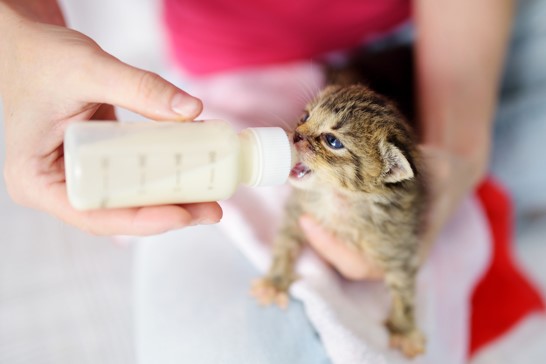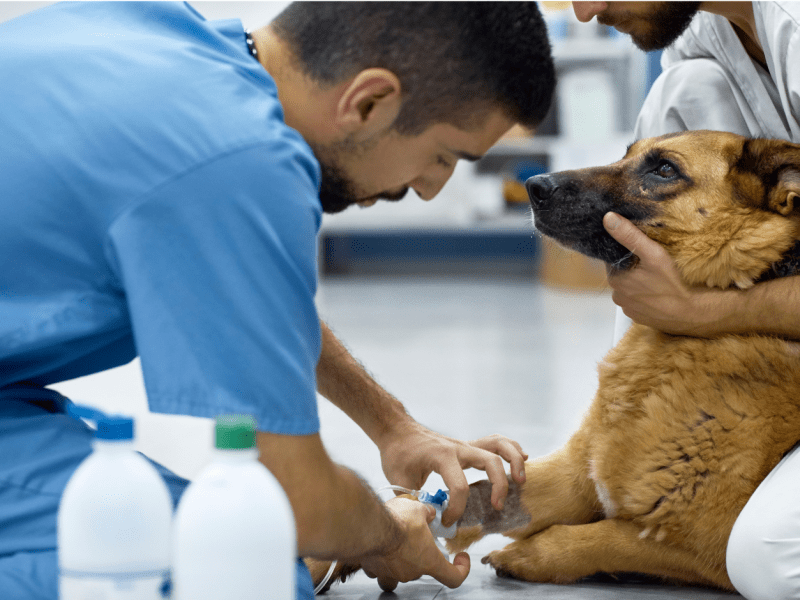It is a beautiful trip to bring a kitten into your house and to ensure that they develop into healthy adult cats, careful attention must be paid to their diet, healthcare, and general well-being. Here is a handbook to assist you in 2023 in raising your kitten into a healthy adult cat.
Balanced Diet
A balanced diet is the foundation of your kitten’s healthy growth, encompassing essential nutrients like protein, carbohydrates, fats, vitamins, and minerals.
- Protein
Kittens must consume at least 30% protein in their food to grow properly. A great source is premium commercial kitten food. Giving your kitten 25–30 grams of protein each day is ideal.
- Carbohydrates
Carbohydrates should comprise about 20-30% of their diet. Incorporate whole grains like brown rice or oats, providing approximately 20-30 grams of carbs daily.
- Fats
Fats should make up around 20-30% of the diet. Healthy fats, such as those in fish or vegetable oils, contribute to coat health and overall vitality. Aim for 20-30 grams of fat per day.
- Vitamins and Minerals
Ensure the diet contains essential vitamins like A, D, and E and minerals like calcium and phosphorus. These nutrients are crucial for bone and overall development.
Frequency and Quantity
- Age 2-3 months: Feed your kitten four meals a day, each containing approximately 30-40 grams of food.
- Age 4-6 months: Reduce feeding to three meals a day, gradually increasing portion sizes to about 40-60 grams per meal.
- Age 7-12 months: Transition to two meals daily, comprising around 60-80 grams of food. Adjust based on your kitten’s size and activity level.
Monitor your kitten’s weight and body condition to ensure they thrive. Consult your veterinarian for dietary recommendations tailored to your kitten’s specific needs.
Deworming
Kittens must be dewormed since they are prone to internal parasites. Deworming should begin at 2-3 weeks of age and be repeated every 2-3 weeks until the child is 16 weeks old. After that, keep deworming them every 1-2 months for the remainder of their first year. For the proper deworming treatment, see your veterinarian.
Vaccination
Vaccination protects your kitten from various contagious and potentially deadly diseases. Here are some common vaccines and their vaccination schedule:
- FVRCP Vaccine
This vaccine protects against feline viral rhinotracheitis, calicivirus, panleukopenia, and chlamydia. Administered at 6-8 weeks, 10-12 weeks, and 14-16 weeks of age, then annually.
- Rabies Vaccine
Typically given at 12-16 weeks of age and repeated annually or as required by local laws.
- FeLV Vaccine (Feline Leukemia)
Depending on your cat’s risk factors, this vaccine might be recommended. Administered at 8-12 weeks and repeated after 3-4 weeks, then annually.
Regular vaccination boosts are crucial to maintaining your cat’s immunity. Consult your veterinarian for a vaccination schedule tailored to your kitten’s and location’s needs.
Nutritional Supplements
In general, well-balanced commercial kitten food should provide all necessary nutrients. However, if your veterinarian recommends supplements for specific health concerns or deficiencies, they will guide the type and quantity required.
Common supplements include:
- Omega-3 Fatty Acids: These promote coat health and may require around 100-200 mg of fish oil daily.
- Joint Supplements: As needed, typically 50-100 mg of glucosamine and chondroitin daily.
Final Verdict
You can ensure your kitten develops into a healthy, content adult cat by following these recommendations for diet, healthcare, and routine veterinary examinations in 2023. Remember that every cat is different, so ask your vet for customized recommendations based on your kitten’s needs.



